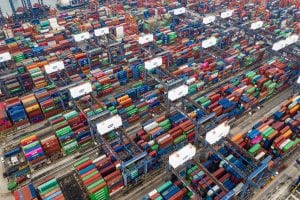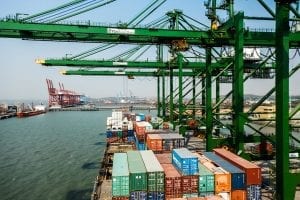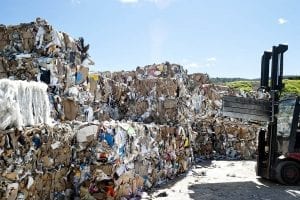 Even as exporters move off of China as a destination for certain recyclables, the country remains a crucial market. And several recent Chinese developments carry industry-wide implications.
Even as exporters move off of China as a destination for certain recyclables, the country remains a crucial market. And several recent Chinese developments carry industry-wide implications.

 Even as exporters move off of China as a destination for certain recyclables, the country remains a crucial market. And several recent Chinese developments carry industry-wide implications.
Even as exporters move off of China as a destination for certain recyclables, the country remains a crucial market. And several recent Chinese developments carry industry-wide implications.
 Malaysia has laid out new criteria for scrap shipments as the country plans for a reduction in imports over time.
Malaysia has laid out new criteria for scrap shipments as the country plans for a reduction in imports over time.
 China has ramped up its purchases of U.S. OCC in recent months, according to the latest trade data. Meanwhile, Southeast Asian restrictions continue to stifle scrap plastic movement.
China has ramped up its purchases of U.S. OCC in recent months, according to the latest trade data. Meanwhile, Southeast Asian restrictions continue to stifle scrap plastic movement.
 China is proposing tariffs on U.S. pulp made from recycled paper, a material that has received recent attention as a potential export to China to replace recovered paper bales.
China is proposing tariffs on U.S. pulp made from recycled paper, a material that has received recent attention as a potential export to China to replace recovered paper bales.
Since the implementation of Chinese scrap import restrictions a number of Chinese companies have set up shop or established partnerships in the U.S. to process material and bypass restrictions. Continue Reading
 Another major importer of recyclables in Asia is drafting policy to reshape its relationship to materials recovery. But this time, the move could actually be a boon to exporters.
Another major importer of recyclables in Asia is drafting policy to reshape its relationship to materials recovery. But this time, the move could actually be a boon to exporters.

Although Chinese scrap plastic import permits remain scarce, the government has ramped up the volume of recycled paper it is allowing into the country to levels not seen since March.
 Scrap plastic shipments to Malaysia will be subject to new restrictions in the coming weeks, as the country follows through on its vow to get a handle on skyrocketing imports.
Scrap plastic shipments to Malaysia will be subject to new restrictions in the coming weeks, as the country follows through on its vow to get a handle on skyrocketing imports.
 The Chinese government provides an option for pre-shipment inspections, and California lawmakers may add language about National Sword into state law. These are among the recent developments as China continues to revise its import regulations and the U.S. recycling industry reacts.
The Chinese government provides an option for pre-shipment inspections, and California lawmakers may add language about National Sword into state law. These are among the recent developments as China continues to revise its import regulations and the U.S. recycling industry reacts.

Green Tech Solution is developing a recycling facility in Blacksburg, S.C.
A Chinese investment firm is planning a $75 million recycling plant to process scrap plastics, electronics and other materials.
